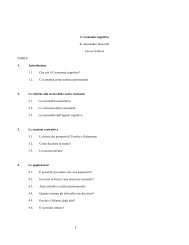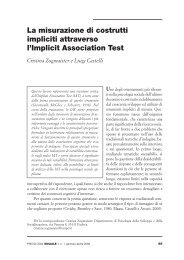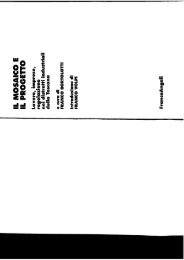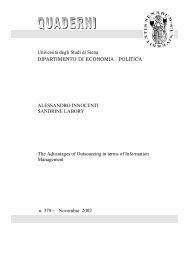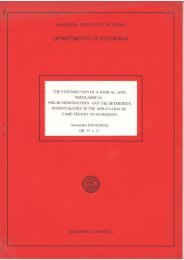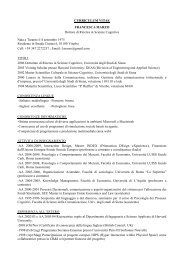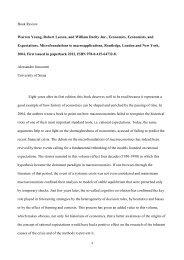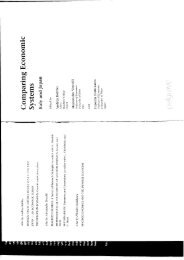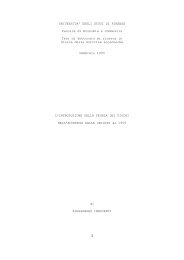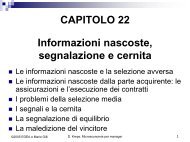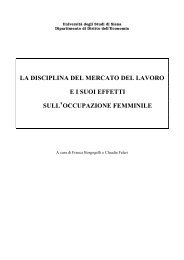Abstracts Book - LabSi
Abstracts Book - LabSi
Abstracts Book - LabSi
You also want an ePaper? Increase the reach of your titles
YUMPU automatically turns print PDFs into web optimized ePapers that Google loves.
on extrinsic information asymmetries or assign leadership roles to various subjects. Leadership is<br />
endogenously determined within the game. In addition, we advertise various attributes of subjects in<br />
order to control for factors that influence subjects’ behavior. We find that there is an intrinsic value<br />
to be a leader and that having a leader improves group performance on average. Lastly, our results<br />
help us identify correlates of social-image other than the individual’s leadership choice.<br />
Antonio Cabrales* Raffaele Miniaci,** Marco Piovesan and Giovanni Ponti**** (*Universitat<br />
Pompeu Fabra, **Università di Padova, ***Università di Brescia, ****Universidad de Alicante and<br />
Università di Ferrara)<br />
“Social Preferences and Contracts: An Experiment on Corporate Culture”<br />
This paper reports experimental evidence on a stylized labor market in which agents are assumed to<br />
hold social (i.e. interdependent) preferences a’ la Fehr and Schmidt [16]. The experiment is<br />
designed as a sequence of three treatments. In the last treatments, principal compete by selecting a<br />
contract from a fixed menu, each contract being the optimal solution of the mechanism design<br />
problem the principals face for a given social preference parametrization. Agents, randomly<br />
matched in pairs, select one of the available contracts (i.e. “choose to work” for a principal).<br />
Production is determined by the outcome of a simple effort game induced by the chosen contract. In<br />
the previous two treatments, we estimate individual social utility parameters and beliefs by various<br />
techniques. We find that social preferences are significant determinants of the matching process<br />
between labor supply and demand in the market stage, as well as agents’ effort decision<br />
Alexander W. Cappelen*° Astri D. Hole,** Erik Ø. Sørensen,° and Bertil Tungodden***° (*The<br />
University of Oslo**Bergen University College, *** Chr. Michelsen Institute, °Norwegian School<br />
of Economics and Business Administration,)<br />
“The pluralism of fairness ideals: An experimental approach”<br />
A core question in the contemporary debate on distributive justice is how the fair distribution of<br />
income is affected by differences in talent and effort. Important theories of distributive justice, such<br />
as strict egalitarianism, liberal egalitarianism and libertarianism, all give different answers to this<br />
question. This paper presents the results from a version of the dictator game where the distribution<br />
phase is preceded by a production phase. Each player’s contribution is a result of an exogenously<br />
given talent and a chosen effort. We estimate simultaneously the prevalence of three main<br />
principles of distributive justice among the players as well as the distribution of weights they attach<br />
to fairness considerations.<br />
Marco Casari* and Luigi Luini** (*Purdue University, **Università di Siena)<br />
“Peer Punishment in Teams: Emotional or Strategic Choice?”<br />
Punishing the free-riders of a team can promote group efficiency but is costly for the punisher. For<br />
this reason, economists see punishment as a second-order public good. We show in an experiment<br />
that subjects do not value punishment for its deterrence but instead for the satisfaction of retaliating.<br />
Punishment choices are made with little strategic reasoning.<br />
16



